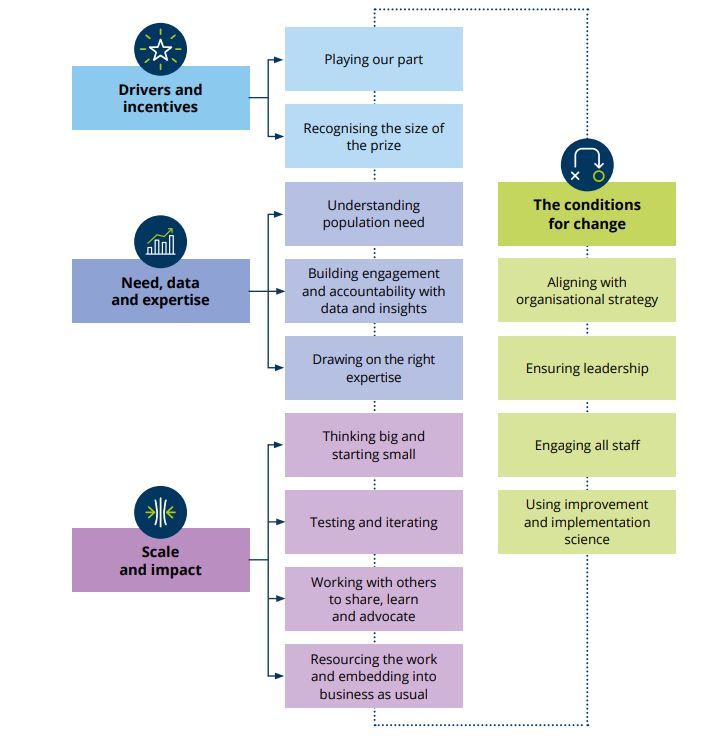Trusts develop innovative approaches to tackling social determinants of health
A new report, Acting on the social determinants of health to reduce health inequalities: innovative approaches by provider trusts, outlines how four trusts are taking action to improve employment, increase income, improve education, and reduce air pollution. These ‘social determinants of health’ – the conditions in which we are born, grow, live, work and age – can be more important than health care or lifestyle choices in influencing health.
Each of the four trusts featured in the report have pursued innovative action on social determinants:
- Barts Health NHS Trust has increased local employment through a range of programmes focussed on young people and local residents to help them secure jobs in the NHS.
- East London NHS Foundation Trust has become a Marmot Trust (based on the principles recommended by Sir Michael Marmot), with a focus on employment, income, poverty, and children and young people.
- Great Ormond Street Hospital has declared a Climate and Health Emergency and has implemented initiatives to track carbon emissions and improve air quality around their site.
- Mid and South Essex NHS Foundation Trust has considered its role as an ‘anchor institution’ in its area and its responsibility to local partners and population. Its projects have been based on improving employment, education, and sustainability.
The report includes 13 lessons (shown below in the graphic) on adopting an innovative approach to tackling the social determinants of health, based on 22 interviews with people leading and implementing these approaches in these organisations. The lessons set out how this work can be implemented, summarising common drivers and incentives, considering how data and expertise can be used, sharing some common conditions for change, and looking ahead to greater scale and impact.

Above: The 13 lessons outlined in the report
Dr Dominique Allwood, UCLPartners Chief Medical Officer and a co-author of the report said: “It’s inspiring to see how these four trusts are leading the way in taking an innovative approach to tackling economic, social and environmental issues. Their successes show the real opportunity for healthcare institutions to proactively improve health and reduce inequalities.“
Richard Fradgley, Executive Director of Integrated Care, East London NHS Foundation Trust, said: “We have been taking action on the social determinants of health, with a focus on employment and income. Our impact to date includes tripling the percentage of suppliers paying the Real Living Wage, increasing pay for cleaners and porters and providing employment for more than 100 service users.“
Professor Sir Michael Marmot, Director, Institute of Health Equity – University College London and author of the 2010 Marmot Review into health inequalities, said: “People’s life chances differ greatly depending on the social determinants of health such as their level of education, income, and the environment, which lead to health inequalities. Health care providers can play an important role in helping to address these inequalities and the projects showcased in this report show what can be achieved through “thinking big and starting small”. Such local action does not let central government off the hook but demonstrates that everyone has a part to play at every level to address the causes of health inequalities to the benefit of patients, communities, and society.“
More information
Read the report Acting on the social determinants of health to reduce health inequalities: innovative approaches by provider trusts.